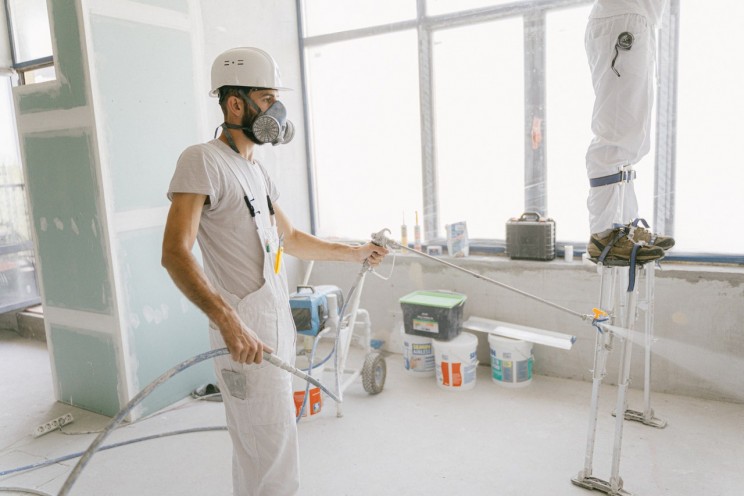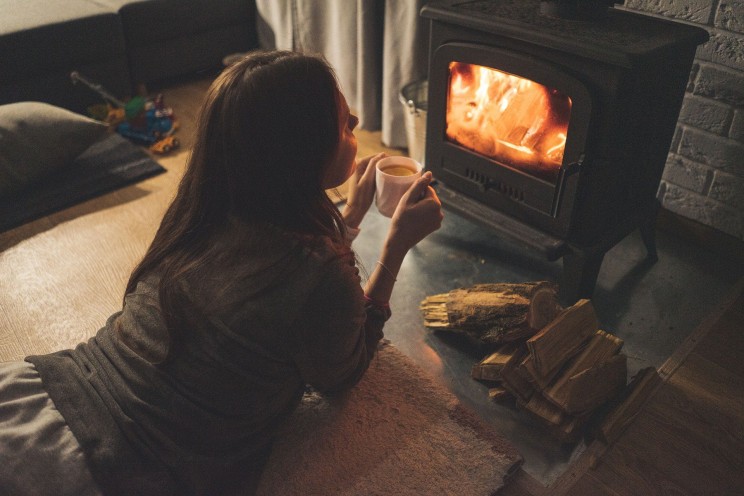
The cold continues to enter Portuguese homes. The lack of efficient homes in Portugal is a blatant issue and improving the energy performance of buildings is, today, a top priority both in Portugal and abroad. The European Union (EU) is applying pressure in this area, to push improvements in energy efficiency, and the state is also strengthening its support for improving the thermal comfort of Portuguese homes. This is a crucial change to reduce energy consumption - which, it is worth noting, is more expensive than ever recently - and to reduce greenhouse gas emissions. Moreover, investing in efficient homes greatly improves the quality of life for the families living in them. Below we outline the state of the push for energy efficiency in Portuguese real estate at the beginning of 2022.

Energy poverty and pressure from the EU
Portugal is the EU country that has the lowest values of energy savings in residential buildings, according to the analysis of the environmental association Zero to the European Commission JRC report. And the truth is that the majority of Portuguese people (88%) consider their home thermally uncomfortable, according to the study conducted by the Sustainable Construction Portal (PCS) in April 2021.
The problem is quite simple: there is a lack of energy efficient houses in Portugal. But why? The idea that Portugal has a mild climate - which is culturally accepted - has influenced construction in the country over the last decades, which has not focussed on the thermal comfort of houses. This has been reflected in the choice of materials, and also in the poor solar orientation of the buildings. Then there are economic factors that play into this issue: when it comes to selecting materials, the cheapest ones are usually still chosen regardless of their energy efficiency. And on a social level too, there's still a lot to do, especially when it comes to convincing people that aesthetics are not the only thing that matters and that investing in the energy efficiency of a house will bring gains in the long term, which are reflected in the electricity bill.
It is urgent to start renovating buildings in Portugal with a view to improving their thermal performance, not least because more than 85% of today's buildings will still be standing in 2050, according to Kadri Simson, Commissioner for Energy. It was with this reality in mind that the European Commission (EC) has designed new minimum standards for energy performance, which will put pressure on owners to make their properties more efficient by 2030. The goal is simple: "to achieve a zero-emission building stock by 2050".

Support for efficient homes
Improving the energy efficiency of buildings is a top priority in the EU and also in Portugal. The Recovery and Resilience Plan (RRP) provides for 610 million euros to be invested in improving the energy performance of Portuguese buildings between now and 2026. And it will be the residential segment that will receive the largest share of this funding (300 million euros), followed by public administration buildings (240 million) and services (70 million). The truth is that European pushes have given new impetus to support programmes focused on making buildings more efficient.
One of them is the Sustainable Buildings + programme that started in June 2021 with an initial allocation of 30 million, and after an "extraordinary uptake" was raised to 45 million euros. The deadline for applications was also extended until 31 March 2022. This is a programme that provides a co-funding rate of 85% for works on homes with a view to improving their energy performance. Until September, the Environmental Fund has already validated 3,247 applications in this program, which total five million euros.

Another programme in place is Vale Eficiência, which aims to combat energy poverty and improve the thermal comfort of homes by giving 100,000 vouchers worth €1,300 each. This programme was launched in August and in October the Ministry of the Environment and Climate Action announced that the first 368 vouchers have already been issued. So far, this programme has received a total of 4,350 applications.

How to renovate and build more efficient homes?
If most of the buildings in Portugal will remain standing for decades, then investing in the renovation of these existing buildings and improving their energy performance is, therefore, one of the paths to follow. And this can be done in various ways: replacing windows, improving the insulation outside and inside the home, installing solar panels, heat pumps, boilers etc.... And all these changes are provided for in the state support.
This process will also involves constructing sustainable buildings. In its latest proposal on this matter, Brussels has proposed that from 2030, all new buildings should have zero emissions. Designing and constructing efficient buildings is the way forward, but "actually [today] no one, or almost no one, thinks about buildings prioritizing sustainability", revealed Aline Guerreiro, architect and founder of the Sustainable Construction Portal, in an interview to idealista/news.

Energy performance certificate: an essential document
Today, the energy performance certificate is an essential document, both to access public funding in this area, and when buying or renting a house. That is, if you want to access public support aimed at improving the energy efficiency of homes, you must present the energy certificate when you apply. And when placing a house on the market - either to sell or rent - it is mandatory to present the energy class of the property, a detail that is indicated only on the energy performance certificate. For this reason, when selling or renting the house, it is mandatory to present the energy performance certificate. To help you navigate the process, idealista/news has put together an explaination of the steps and tips to avoid fraud.
In addition to these applications of the certificate, Brussels also wants to strengthen the role of the energy certificate in the European real estate market. This is because the scope of application will be extended, making it compulsory to present this document in major renovations of buildings, in buildings whose lease has been renewed and in all public buildings.

Energy crisis in place - electricity prices rising
Improving the energy efficiency of the home is an important step to improve the comfort of families, but also to reduce energy consumption, at a time when electricity prices are soaring. The Energy Services Regulatory Authority (ERSE) has revealed the price of electricity has gone up again from October, with a rise of €1.05 per month planned for most consumers on the regulated market.
And why is this happening? According to the ERSE, energy tariffs reflect the rise in wholesale market prices. And the truth is that the electricity price escalation in the Iberian wholesale market seems to have no end in sight and the numbers are breaking all records. Families' electricity bills are skyrocketing - especially those who live in poorly insulated houses and try to heat their homes using electrical appliances.
And what will it be like in 2022? The ERSE predicted in December that the price of electricity for consumers in the regulated market would rise by 0.2 per cent from the beginning of the year 2022. However, the environment minister guaranteed in September that "there will be no increase in the price of electricity for domestic consumers in the regulated market for the year 2022". The best thing to do in this case will be to wait and see what happens in the market.

How to heat your home without skyrocketing electricity bill?
Heating the house on the coldest days is really a challenge for many. With houses so inefficient in terms of their energy consumption and electricity prices on the rise, keeping the house warm can seem like an impossible mission for many families. One in every five Portuguese citizens cannot keep their homes warm because they cannot afford to pay the energy bill (electricity or gas), this is the conclusion to be drawn from the latest Eurostat data.
To help families to heat their homes in a practical and cheap way, the idealista/news has gathered a set of tips and tricks.